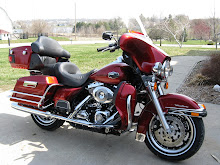Last week I received a list of 10 questions from her classes. That very morning I fired off answers. Susan replied that they would be discussing the list and my answers this Thursday.
I asked Susan if it would be OK to share these questions on my blog. Her response was of course, please share them.
Over the next few days I will share all the questions. Probably a couple per day, depending on the length of my answer, some a bit wordy. But of course regular readers would expect that in my writing.
Most importantly I would love for you all to share how you might have answered or if you think my answer was complete BS share that too.
Prior to answering the questions I wanted to make sure the students knew they were not talking to a professional but merely a dad that had lived through the experience of an addicted loved one.
First
of all I want to qualify my answers with the fact that I am not an addiction
specialist, counselor, teacher or any other professional in the field of
addiction. I am merely the parent of an addict that lived the experience of a
son addicted to drugs for seven years. My knowledge in this subject comes from
experience and reading. Anything I answer to your questions is borne of my
experience and does not in any way construe expert or professional counsel in
this subject. Just call me Dad; I am no different than your fathers and the
millions of other fathers out there that would love their son through a
terrible disease.
1. Do you think your son’s addiction has to do with his
environment, or is it a disease?
This is like two questions in one. I am going to take liberties with this and answer it
in two parts.
I
certainly believe environment can influence experimentation with drugs and
alcohol. However, I will not accept that environment is determining factor in
the use of drugs. In my experience I have met addicts from rich and poor homes,
religious and non-religious homes, broken homes and with married parents where
both parents are in the home. Addiction does not discriminate; it is uniquely
individual just as any other disease.
I
do believe experimentation with drugs can strongly be influenced in peer
relationships. What people perceive to be an accepted norm can become an
influencer in choices and behavior. In the beginning experimentation or using
drugs may be a choice, it becomes a disease.
Addiction
is a disease. I struggled with this idea mightily for five years. I read and
knew about the physiological changes in an addict’s brain and body. I’d seen
pictures of an addicted brain and non-addict brain. I could compare and see the
physical differences. Personally I couldn’t accept the disease model. In my
mind, he made a choice to take drugs, simply make a choice to stop taking
drugs.
I
didn’t “get” it until one very bad day. I saw needles in our son’s room. We
argued, screamed and cussed at each other for one hour. Fighting literally for
a full hour at the very top of my emotions. Exhausted we both went downstairs
and sat at the kitchen table. With my head in my hands and crying I begged my
son once again to stop.
He
asked me to play a game with him. He asked me to hold my breath as long as I possibly
could hold my breath. During that time he said he would not think about drugs,
getting drugs, using drugs, how drugs made him feel. He told me that I would
win the game every time. He began to cry and begged me for help. He said he
couldn’t even sleep in peace, he dreamed about and had nightmares about drugs.
At
that very moment in time I understood. It was my light bulb moment. My son
needed drugs as much as I needed oxygen. Simply asking him to stop would be as
effective as asking me to simply stop breathing. That was when I internalized
and accepted the disease model of addiction.
2. What was your first reaction when you found out your
son had an addiction?
Denial,
denial, denial and oh, did I mention denial.
It’s
just a little weed, boys will be boys.
Our
first real acceptance that this was a problem was when the phone rang at
11:30PM while we were asleep. It was Overland Park Regional Hospital emergency
room calling to inquire about our son. A young man without identification was
pushed out of the backseat of a car onto the emergency entrance sidewalk
unconscious and not breathing. The only thing on him was a book of checks with
our name.
We
were told that if this might be our son we should come as soon as possible.
When we arrived he had been given Narcan and was conscious. This was really our
first realization that our son was an addict.












4 comments:
I think your answers are great! Open and honest and straight to the point. I particularly like your explanation of how you "got" it.
Kathy
I have a question, does your son drink alcohol? I know that most programs say that a recovering addict should not drink alcohol and I was wondering what your thoughts on that were. I know when my son stopped using drugs, he did drink alcohol and then became an alcoholic but I'm not sure that is the case for all recovering addicts.
Your answers are great & very honest. We all need to get it. I have been dealing over 45 years with addicts. My son's, daughter & some of my grandson's It is killing my husband & myself. We lost one son from a overdose & am so scread of losing more if they don't stop. They get help & stay clean for a little while & then start all over again. All we can do is keep loving them & praying for them to stop.
Thank you for sharing your light bulb moment of understanding addiction is a disease as well as what it took to recognize your son as an addict. These are honest thoughts that parents of adult children struggling with drug or alcohol addictions must come to terms with.
Post a Comment